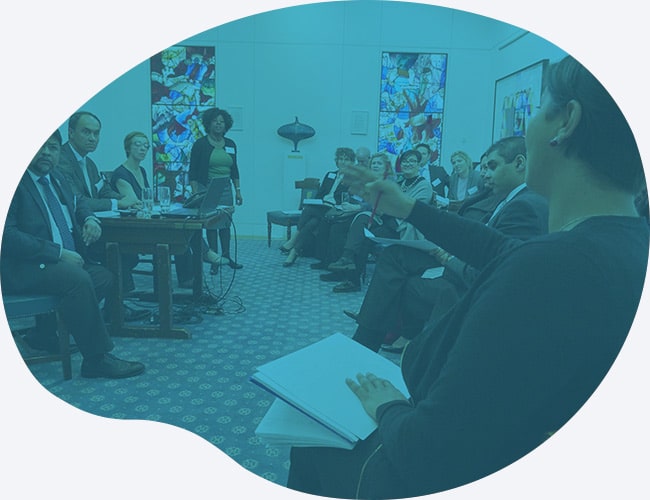
According to a 2022 ILO study, over 6% of those in employment globally have experienced sexual violence and harassment at work. In many countries (though not all), sexual harassment and misconduct is unlawful. It also constitutes a breach of regulation in some sectors and, in financial and legal sectors, is increasingly viewed as a means of determining someone’s fitness and propriety in professional life. Across the globe there are cultural nuances that determine social and behavioural ‘norms’ with regard to behaviours, so how do we navigate effective and healthy conversations to prevent sexual harassment in our organisations in a way that’s engaging, meaningful and delivers a positive impact for colleagues?
In our view – as with any behavioural change – individuals have to SEE it. When these toxic behaviours are played out (whether live, virtual or digital) in a safe setting, and in a way that doesn’t cause genuine harm to the individuals involved there is a power and immediacy that supersedes any written policy, organisational values or guidance documentation. When people witness harassing behaviours and they see/hear the impact of those behaviours on the individuals involved, it creates a visceral connection to this topic that is otherwise very hard to illicit.

Global organisations are increasingly moving towards a model of prevention rather than redress. To achieve this, an experiential approach is highly effective, as it allows individuals to engage with this topic on a personal level – going beyond the law, the regulation and company policy to really take personal accountability for being part of the change. Engaging hearts and minds in this way is so much more effective than and written materials or online ‘tick box’ training exercises. The communal learning ‘experience’ is a vital component too, because what one person deems acceptable could be unacceptable to another and this shared exploration and honest discussion is crucial in navigating this topic with sensitivity and meaning.
We know our work has real impact, people ‘see themselves’ in the scenarios and, for those with genuine blindspots, this learning can bring about ‘a-ha’ moments where they realise their own behaviours or attitudes might be contributing to the issue either directly as a perpetrator, or indirectly, by not speaking up themselves and/or preventing others from doing the same.
So, how do we define sexual harassment so that there is a shared understanding of what is, and isn’t, acceptable? How do we create a culture where speaking up is valued, and one that supports and celebrates active upstanders when they challenge harassing behaviours. How do we recognise inappropriate behaviours when they are experienced or witnessed? What does it mean to be an ally, and how can we play our part in creating a culture of prevention and allyship?
If you are looking for ways to tackle sexual harassment, inappropriate behaviour and misconduct within your organisation, please talk to us. With knowledge, experience and discretion we can partner with you to deliver the change we all want to see. Please use our contact form here [LINK], or contact one of our global offices to have a conversation.


